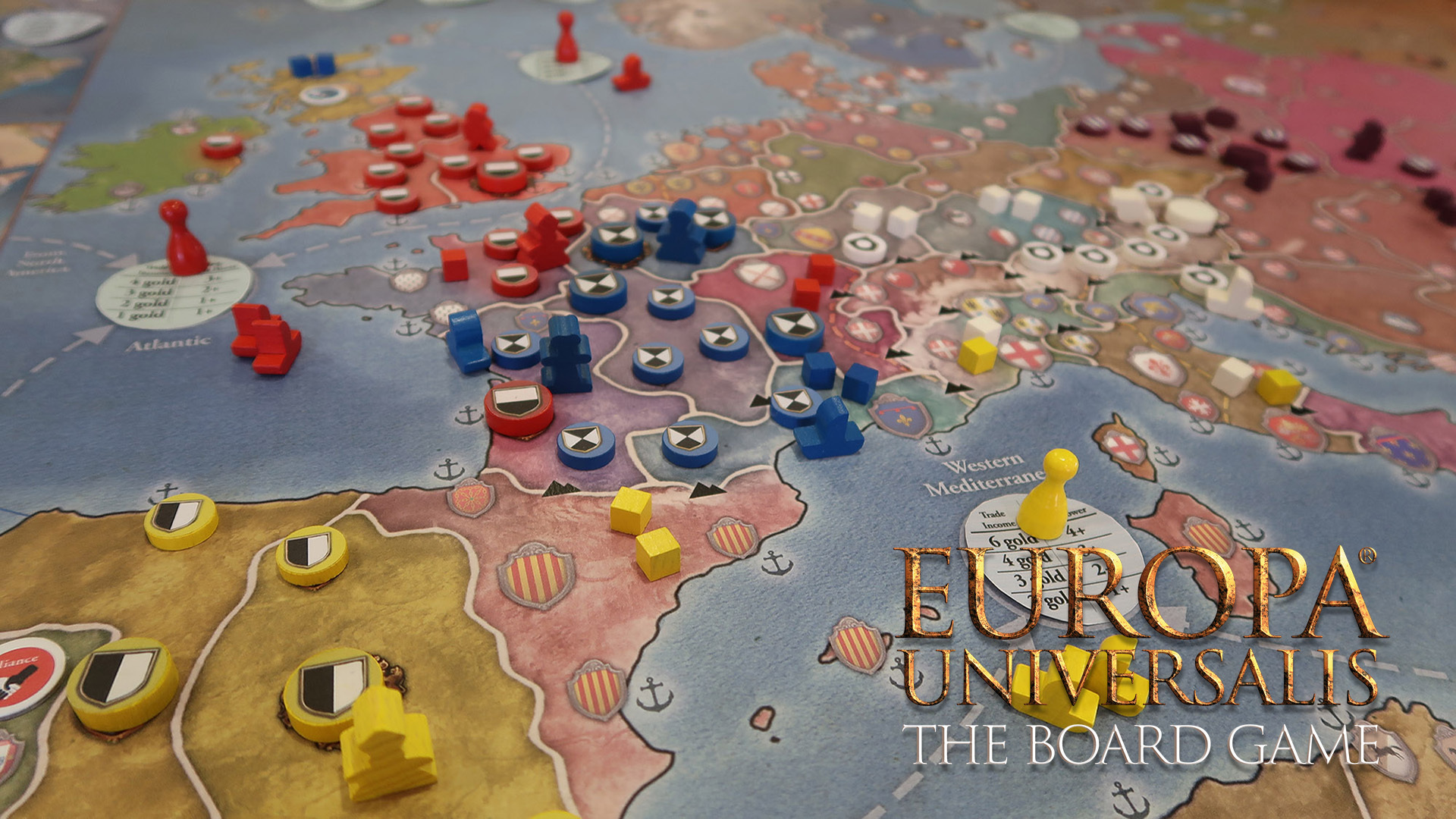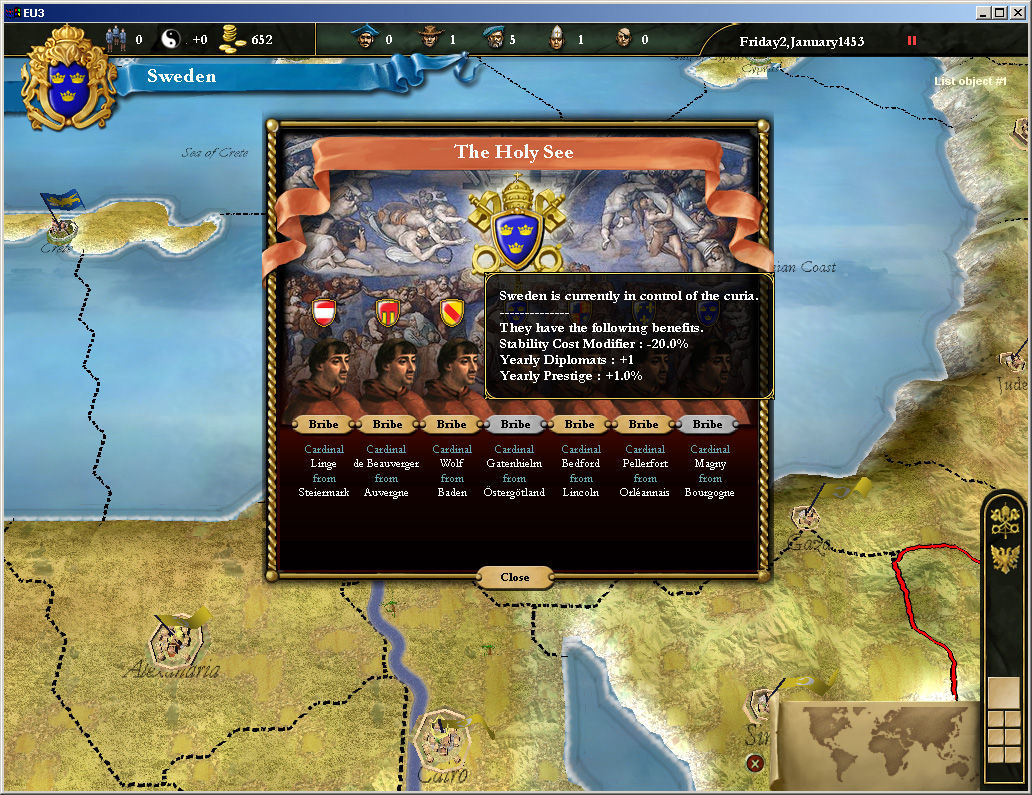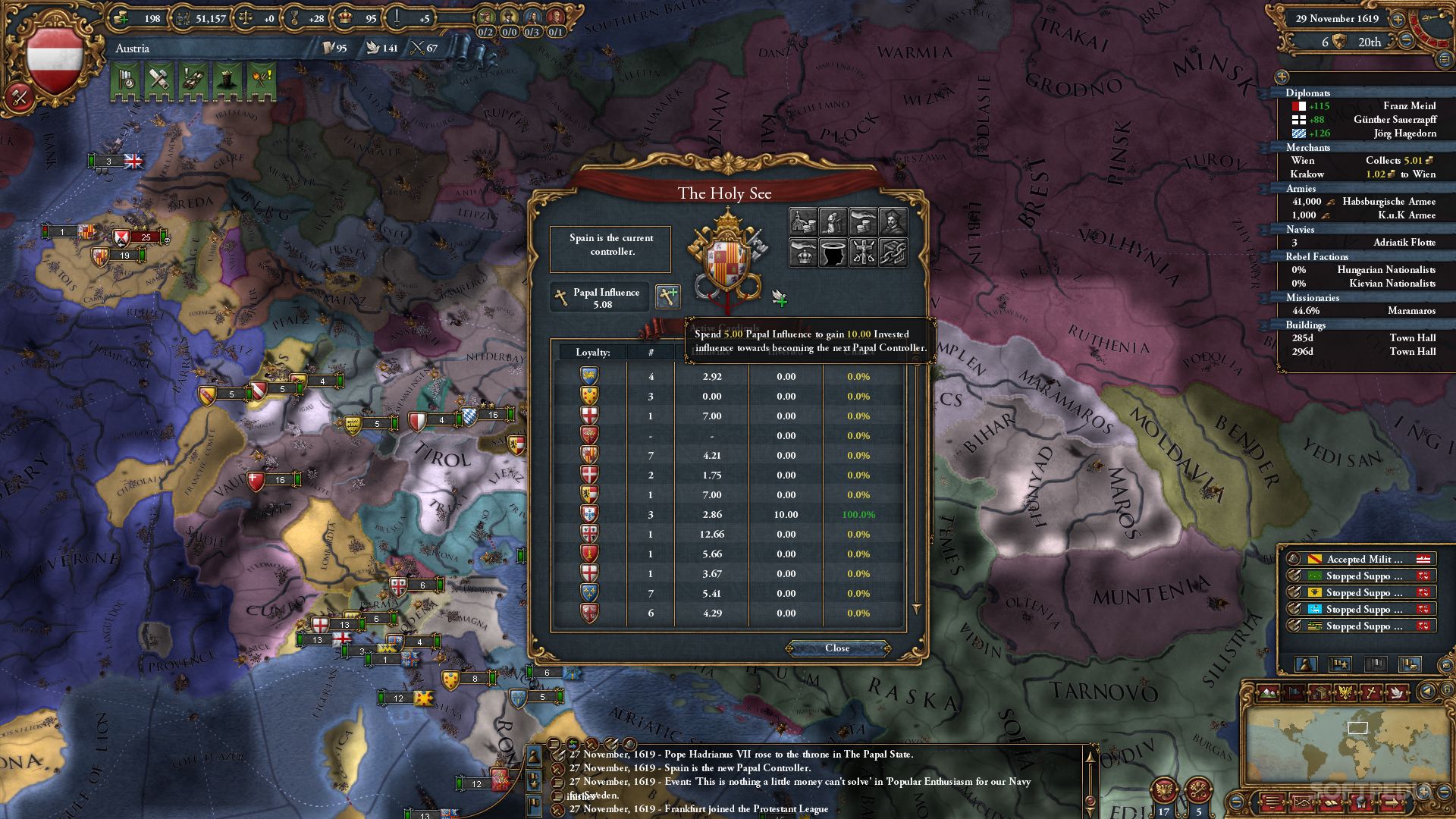

When not warring, peacetime is just as busy for players as the game keeps them focused on economic research.

Moving armies across the the world results in a small, numbered soldier icon trotted along a curved line through various countries and provinces - it doesn't sound very exciting, but most of the entertainment in Europa comes from the deep layers of strategy, as opposed to the graphical interface - or lack thereof. The AI will act upon their ambitions straight away, immediately throwing challenges and soldiers at most players. Players can set ambitions for themselves to achieve (the AI does this as well), and conflict is always afoot somewhere across the map. Players will enlist generals and merchants to their cause, encouraging trade routes where required and embedding themselves into national-scale politics, even organizing royal marriages as a diplomatic strategy.

The ability to help in the crafting of these alternate-history timelines is one of the best and most entertainment aspects about Europa Universalis IV. Players can also play multiplayer online or via LAN. Gamers can choose any nation through this timeline (allowing for hundreds of choices) and watch as their nation either expands through war, trade or intrigue - or, as often as not, gets hindered and butchered by a surprisingly intelligent AI nations who crafts their own alliances and perform actions to their own agendas. History buffs will be blown away at the in-depth accuracy of Europa Universalis IV, which features several hundred years worth of accurate history along its timeline, running from the year 1444 and allowing players to play through until 1820 as Europe expands to the New World. Europa Universalis features a learning curve so steep that new players will have to accept they'll be losing more often than not, but that's what makes the game so good. Instead of worrying about dynasties is the 4X (explore, expand, exploit, and exterminate) followup, players now embody a nation throughout the ages of the Renaissance and industrial revolution, competing against hundreds of other nations of varying sizes in a game which gets complicated very, very quickly. Some nations, like England, France, and The Ottomans have clearly had more time spent on making them distinct, but even smaller powers like Native American tribes get their own unique units, even though less attention has been paid to their missions and historical events.Whether it's crafting a game where murdering eight sons to unite Russia and Scotland seems like a good idea or making a Reservoir Dogs trailer for a game about magic, Paradox Development Studio and Paradox Interactive have seemingly perfected the craft of developing engaging and deep strategy games.Įuropa Universalis IV comes after the well-received Crusader Kings 2 and appropriately picks up right where its predecessor left off. It can be intense and exhausting, but the rewards of outsmarting a devious foe or surviving an invasion from a significantly more powerful country make it worthwhile.Įuropa Universalis IV‘s greatest triumph - beyond being a deep grand strategy title that doesn’t obfuscate everything and leave newcomers weeping in the corner - is how it makes every new game feel like a new game. Much of my time with Europa Universalis has been spent with the game paused, pouring over menus, investigating my neighbors, and fretting over what my next step will be.

Europa universalis 4 review video upgrade#
“Do I spend my military points to stamp out a potential rebellion, or do I upgrade my soldiers so I can face a threat amassing on my border?” The challenge is in identifying the most immediate concerns and then planning for others. Playing with these systems often results in some tough decisions.


 0 kommentar(er)
0 kommentar(er)
